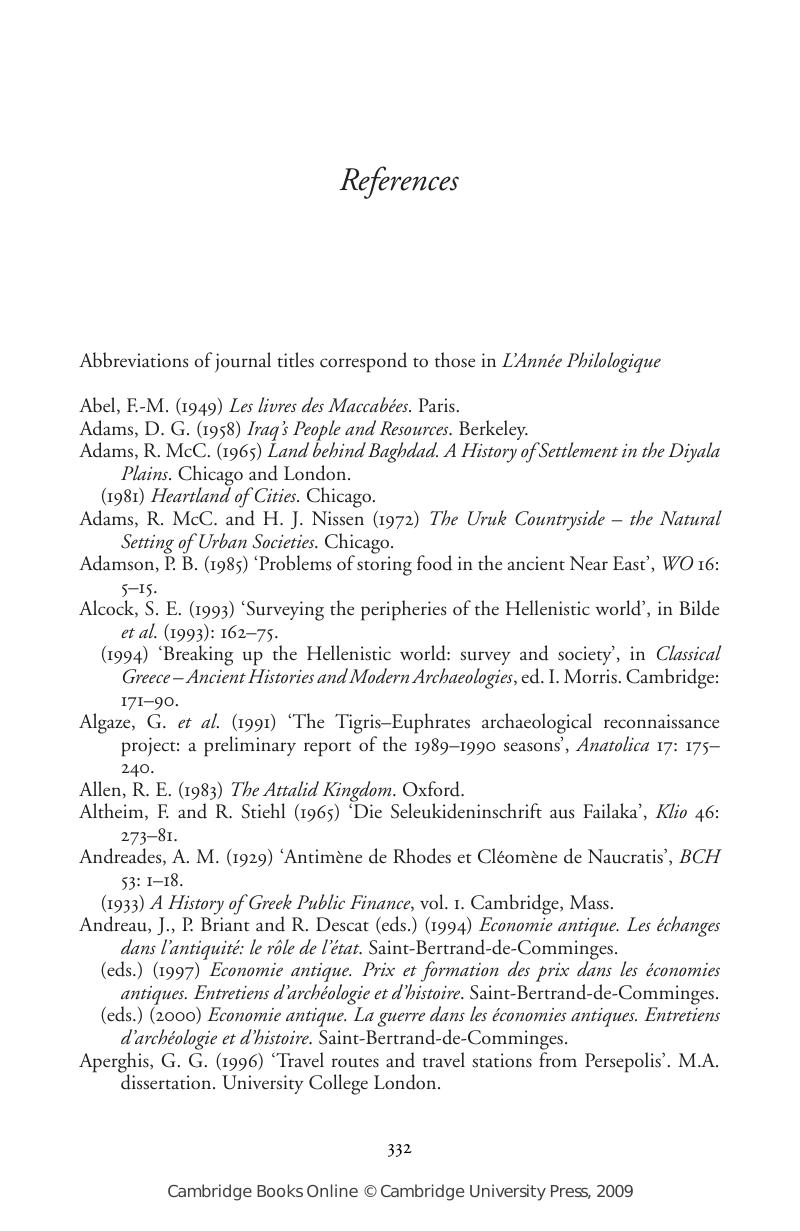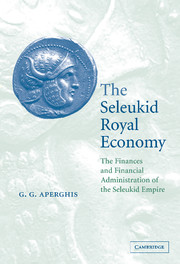Book contents
- Frontmatter
- Contents
- List of figures
- List of tables
- Preface
- List of abbreviations
- Map. The Hellenistic Near East
- Introduction
- Part I PRELIMINARIES
- Part II THE UNDERLYING ECONOMY
- Part III THE ROYAL ECONOMY
- General conclusions
- Appendix I Coin hoards lists
- Appendix 2 Documents and translations
- References
- Index
- References
- Frontmatter
- Contents
- List of figures
- List of tables
- Preface
- List of abbreviations
- Map. The Hellenistic Near East
- Introduction
- Part I PRELIMINARIES
- Part II THE UNDERLYING ECONOMY
- Part III THE ROYAL ECONOMY
- General conclusions
- Appendix I Coin hoards lists
- Appendix 2 Documents and translations
- References
- Index
- References
Summary

- Type
- Chapter
- Information
- The Seleukid Royal EconomyThe Finances and Financial Administration of the Seleukid Empire, pp. 332 - 349Publisher: Cambridge University PressPrint publication year: 2004



